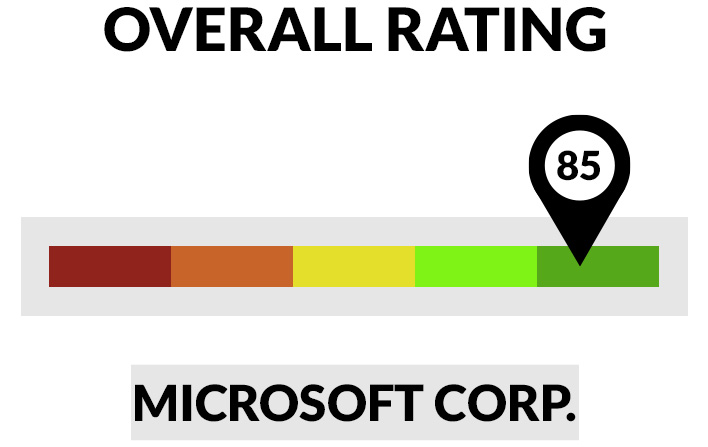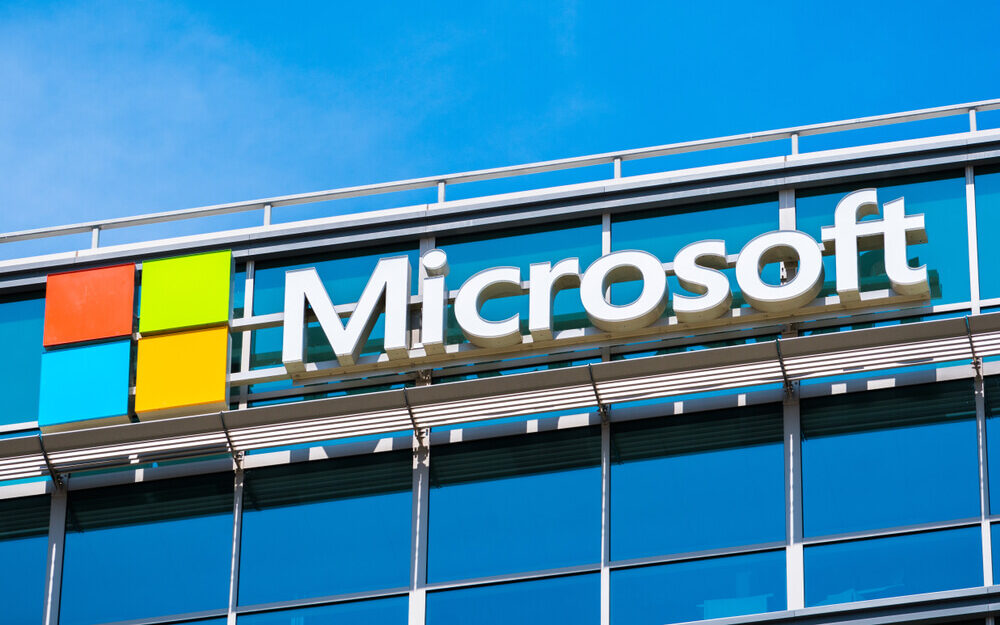Scott Fitzgerald wrote that “there are no second acts in American lives.”
With precious few exceptions, that tends to be the case in technology stocks. For every Apple (Nasdaq: AAPL) that manages to redefine itself, there are dozens if not hundreds of BlackBerrys or Kodaks that slide into irrelevance.
Microsoft Corp. (Nasdaq: MSFT) is one of the few large tech names that has managed to reinvent itself.
Under CEO Satya Nadella’s leadership, Microsoft made the transition from “software as a product” to “software as a service.”
For those unversed in MBA buzzwords, this means that you no longer “buy” software. You rent it. Rather than make a one-time purchase of Microsoft Office, you pay a little each month, forever.
This helps insulate Microsoft stock from the boom-and-bust cycle. During hard times, companies are less likely to pay for major software upgrades. Under the subscription model, they don’t have to.
Microsoft has also emerged as a leader in cloud services. Amazon’s (Nasdaq: AMZN) AWS still has the largest share of the cloud market, but Microsoft is a solid No. 2.
Microsoft has done best as a business-to-business service provider. But it’s mostly failed with consumers. Remember the Zune MP3 player? Or the Windows Phone? Or what about the search engine Bing?
Don’t feel bad if you don’t remember them. They were all forgettable.
This may change, however. Along with Twitter, Microsoft is negotiating the possible purchase of Chinese video-sharing app TikTok. Unlike Twitter, Microsoft actually has the cash on hand to buy TikTok outright. (It would use approximately 1/3 of Microsoft’s cash on hand.)
Microsoft has no experience running a social media site, and it could run TikTok into the ground.
The jury is still out.
But if it’s a success, Microsoft could compete in an entire new market, taking on Facebook (Nasdaq: FB) and Alphabet’s (Nasdaq: GOOGL) Google in the social media and video realm.
In the meantime, let’s see how Microsoft rank’s using Adam O’Dell’s Green Zone rating system.
How Microsoft Stock Ranks

Overall, Microsoft scores a solid 85. Only 15% of stocks in Adam’s universe rate higher. Let’s drill down to the details.
- Momentum — Microsoft rates high on momentum, scoring a 97. Its Directional Movement Index (DMI), which is a trend indicator, rated a 99. In plain English, this means that Microsoft has been performing well of late, and that good performance generates more buying.
- Quality — Because of their high margins, software companies often rate as high-quality businesses. Microsoft is no exception, coming in with a quality rating of 97. Drilling down, it rates as a 99 on profit margins, a 98 on its return on assets, return on equity and return on investment, and a 94 based on cash flows. Microsoft is a solid blue chip — hands down.
- Growth — Microsoft stock also rates high on growth, which often goes hand in hand with momentum. Its growth rating is 94. Its earnings per share growth rates a 93, and its sales growth rates an 83. Given Microsoft’s sheer size, it is phenomenal that Microsoft’s sales growth is high enough to outpace all but 17% of stocks.
- Volatility — Microsoft is also a low-volatility stock, rating a 94. Part of this is due to the company’s transition to a “software as a service” model. With Microsoft’s earnings stream less volatile, its share price is also less volatile.
- Value — All this comes at a cost, though. Microsoft isn’t cheap. It rates a 14, meaning it’s pricier than 86% of all stocks. This isn’t surprising, of course. You have to pay up for quality. But Microsoft loses some points here.
- Size — And finally, we get to size. Microsoft is huge, with a market cap of $1.6 trillion. It shouldn’t be surprising that Microsoft ranks low on this metric, coming in at 1. As a general rule, smaller companies should outperform their larger, more established rivals. We live in an unusual time in which the largest companies also happen to be some of the fastest growing companies. But Microsoft stock loses some points here.
Microsoft is massive and expensive. But this winner rates high enough in most other metrics to still be worthy of consideration.
Money & Markets contributor Charles Sizemore specializes in income and retirement topics. Charles is a regular on The Bull & The Bear podcast. He is also a frequent guest on CNBC, Bloomberg and Fox Business.
Follow Charles on Twitter @CharlesSizemore.





